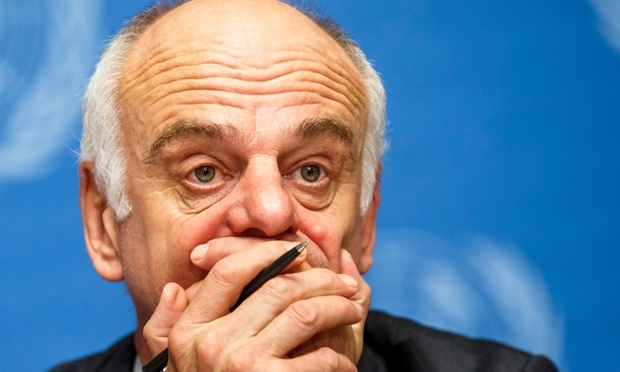 ‘Flare-ups occur and, frankly, before you can blink, we could be back to a situation where Ebola starts climbing up again,’ says the UN special envoy for Ebola, David Nabarro. Photograph: Salvatore Di Nolfi/EPA
‘Flare-ups occur and, frankly, before you can blink, we could be back to a situation where Ebola starts climbing up again,’ says the UN special envoy for Ebola, David Nabarro. Photograph: Salvatore Di Nolfi/EPA
UN special envoy for Ebola sounds cautionary note amid fears that individuals who ignore official advice could cause spike in infection rate
theguardian.com - by Sam Jones - March 26, 2015
Despite the massive push to bring the number of new Ebola cases down to zero as quickly as possible, there will inevitably be “flare-ups” that could reverse the overall downward trend and prove difficult to contain, the UN’s response co-ordinator has warned.
Dr David Nabarro, the UN’s special envoy for Ebola, said the huge medical, administrative and logistical operation to fight the disease could still be set back by individuals ignoring official advice. . . .
. . . “It’s [about] getting the full geographical coverage and linking everyone together with the most excellent data systems so the databases are comparable and we don’t end up with a mess because different people can’t talk to each other,” he explained.
Recent Comments